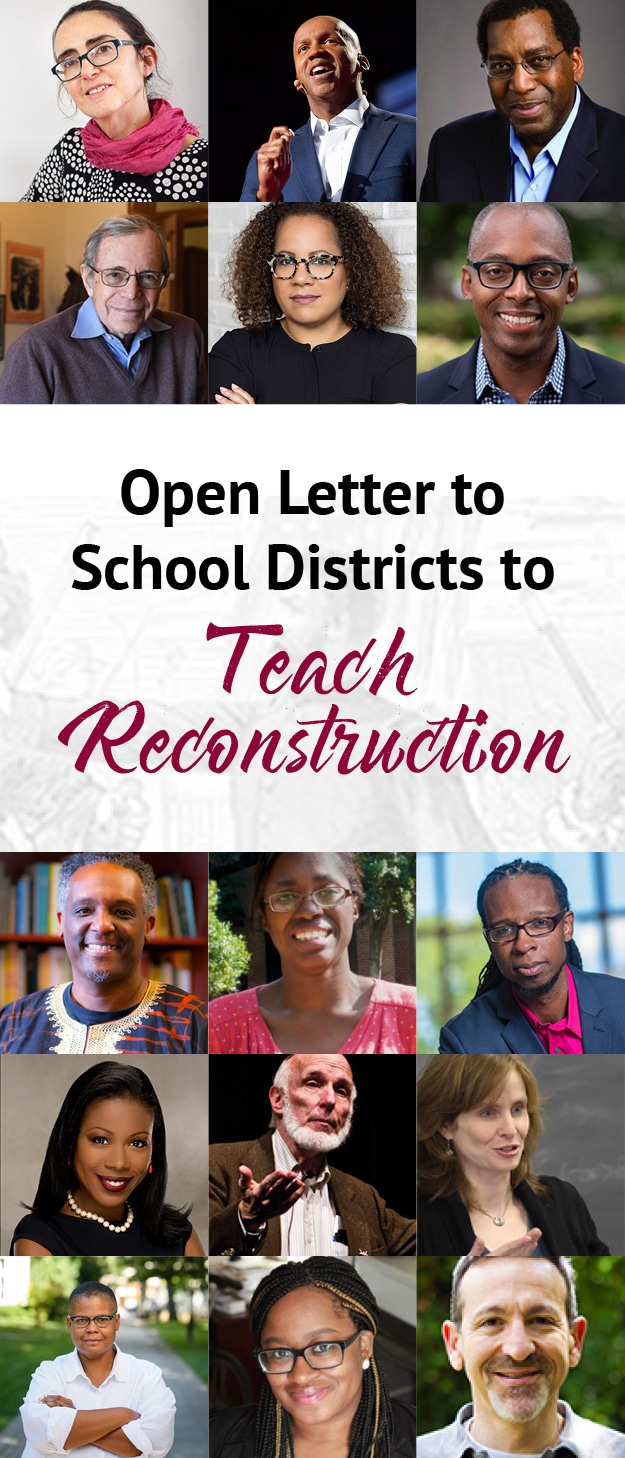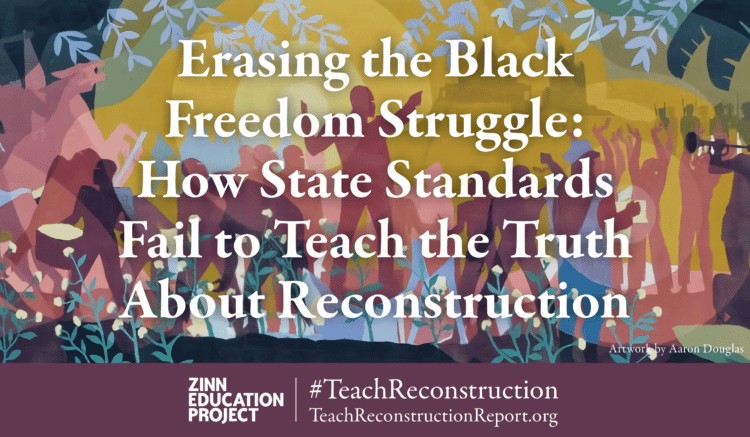 As the United States faces ongoing threats of white supremacist violence and voter suppression legislation, more than 240 scholars of U.S. history have signed an open letter urging school districts to devote more time and resources to teaching the Reconstruction era in upper elementary, middle, and high school U.S. history and civics courses.
As the United States faces ongoing threats of white supremacist violence and voter suppression legislation, more than 240 scholars of U.S. history have signed an open letter urging school districts to devote more time and resources to teaching the Reconstruction era in upper elementary, middle, and high school U.S. history and civics courses.
The letter’s signatories include Eric Foner, Ibram X. Kendi, Isabel Wilkerson, Bryan Stevenson, Keeanga-Yamahtta Taylor, Charles Payne, Kate Masur, Clarence Lusane, Greg Carr, Keisha Blain, Khalil Gibran Muhammad, Tera Hunter, Kidada E. Williams, Joshua Rothman, Tyler Parry, Hilary Green, Erica Armstrong Dunbar, and Jeanne Theoharis.
Absent a study of Reconstruction, January 6th can seem like an aberration. “Too often in our schools, movies, and televisions, white supremacist mob violence, when it is acknowledged at all, is contextualized as exceptional or unusual, a departure from what is ‘normal’ or truly ‘American,’” explained University of Alabama professor Joshua D. Rothman in a Hechinger Report op-ed. “During postwar Reconstruction, violence by white mobs and paramilitary terrorist organizations was legion. These mobs particularly targeted Black lawmakers, Black voters and their allies.”
Renowned scholar of Reconstruction Eric Foner wrote in The Nation, “January 6, 2021, will long be remembered as the day two strands of the American experience, both deeply embedded in our national history, collided.” These two strands are the long fight for racial justice and the counterattack of white supremacist mob violence.
Studying Reconstruction helps us see our own era with greater clarity. Howard University professor Greg Carr argues that: “Reconstruction is the lens through which we have to view the rest of American history.” However, too often the story of this grand experiment in interracial democracy, and the white supremacist backlash, is skipped altogether or rushed through in curricula and classrooms.
Tyler Parry, a professor at University of Nevada, Las Vegas, emphasizes how important it is for young people to wrestle with the contradictions of the Reconstruction period: “We simultaneously come to know the possibilities of a better society and the lengths that the opponents of such progress will go to violently subvert it.” Adds Hilary Green, an associate professor at the University of Alabama: “Reconstruction is essential for not only understanding the creation of the modern United States but how the unreconciled legacies from emancipation and Confederate defeat shapes the present.”
“If students don’t understand Reconstruction, they don’t understand U.S. history, politics, or form of government, nor do they understand the history of racism and racial oppression in the country. I signed this open letter because no period in U.S. history is more important for the nation’s story nor more relevant to the students’ experiences today,” said Gregory P. Downs, professor at the University of California at Davis.
Throughout the United States, teachers are searching for ways to help their students understand not only January 6, but countless other examples of white supremacist violence and fascism. Those students who have studied the lessons of Reconstruction have a head start on making sense of the historical moment we find ourselves in.
The Zinn Education Project — coordinated by education nonprofits Rethinking Schools and Teaching for Change — launched a campaign in 2017 to Teach Reconstruction with free lessons, workshops, book and film recommendations, and a state-by-state national report on the teaching of Reconstruction. The campaign is one of the resources offered to the more than 150,000 teachers who have signed up to access people’s history lessons at the Zinn Education Project.







Twitter
Google plus
LinkedIn